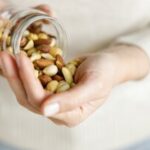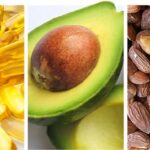Exercising in the morning, particularly on an empty stomach, is a practice that some individuals prefer due to its potential benefits, such as enhanced weight loss and improved focus. This approach, known as fasted training, is believed to activate a metabolic switch affecting cellular neural networks, which can lead to increased neurological plasticity and a heightened resistance to stress. It is thought that this state of alertness activates a “fight or flight” response, similar to the experiences of our ancestors during their morning hunts.
However, to ensure optimal performance during these morning workouts, proper nutrition and rest the night before are crucial. Consuming carbohydrates in the evening has been shown to activate melatonin and enhance sleep quality. These carbohydrates are stored in the liver and muscles as glycogen, which is critical for maintaining energy levels during a workout. Inadequate glycogen stores can lead to muscle fatigue and impaired performance.
In contrast, consuming high amounts of saturated fats before a workout can be detrimental to performance, particularly at higher intensities. Instead, incorporating omega-3 fatty acids, found in foods like fatty fish, eggs, and seeds, can positively impact endurance and gut health. Omega-3s are beneficial for the gut microbiome through their involvement in bile acid production.
Carbohydrate loading is an effective strategy to maximize glycogen storage. The type of carbohydrates consumed is important; simple carbohydrates are easily digestible and help with hydration, while fibrous carbohydrates are vital for digestive health. However, balancing the intake of these two types of carbohydrates is essential to avoid gastrointestinal issues and maintain gut health.
Additionally, probiotics can aid in cognitive function, gut health, and mood regulation. These can be consumed the night before a workout and are especially beneficial during the recovery phase. Foods like yogurt, which contain probiotics and protein, are excellent choices for post-workout recovery.
It is also advised to limit the intake of sugar and alcohol before a workout. High sugar intake can lead to energy crashes, while alcohol can dehydrate the body, disrupt sleep, and impair cognitive function.
On the morning of the workout, hydration is key. Adequate hydration affects gut function, energy levels, and cognition. Electrolytes, found in supplements or natural sources like lemon juice, can enhance water absorption and help the body wake up more effectively than caffeine. Caffeine, while beneficial for focus and reducing fatigue, should not replace water. A combination of caffeine and water, possibly with added electrolytes, can prepare the body and mind for optimal performance. However, for those aiming for a fasted workout, it’s essential to consume caffeine in its plain form, without sugar, milk, or oils, to avoid breaking the fast and causing energy crashes.
In summary, a balance of fast and slow carbohydrates, coupled with omega-3 fatty acids, can optimize an athlete’s health the night before a morning workout. Reducing saturated fats, sugar, and alcohol intake can also positively impact the following morning’s energy levels.
Sources:










